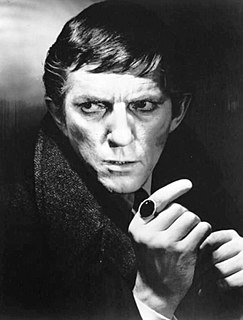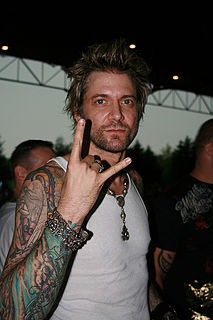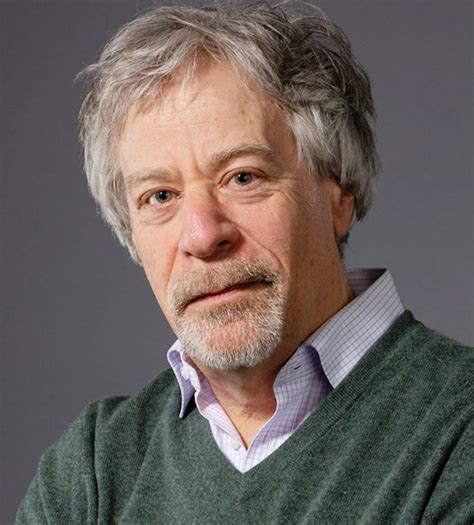A Quote by Philip Reeve
That's the trouble with a story spinner. You never know what's real and what's made up. Even when they are telling the truth, they can't stop themselves from spinning it into something better; something prettier, with more of a pattern to it.
Related Quotes
The only real reason for self-referencing is the fun factor. It's fun for the writer, getting little peeks at what old characters might be up to. And it's fun for readers to spot a familiar face, or pick up on a made-up book title or something from an earlier story. I don't know that it does -- or even should -- contribute to the story in hand being any better than it would have been without it.
When an acting teacher tells a student 'that wasn't honest work' or 'that didn't seem real,' what does this mean? In life, we are rarely 'truthful' or 'honest' or 'real'. And characters in plays are almost never 'truthful' or 'honest' or 'real'. What exactly do teachers even mean by these words? A more useful question is: What is the story the actor was telling in their work? An actor is always telling a story. We all are telling stories, all the time. Story: that is what it is all about.
Sometimes I don't tell the truth, which is telling the truth about not telling the truth. I think people don't tell the truth when they're afraid that something bad's going to happen if they tell the truth. I say things all the time that I could really get into trouble for, but they kind of blow over.
Each child is made neurotic by the parents, by the society; and we know that we are doing it, and we know that others have done the same to us. Stop doing it to yourself and stop doing it to others. Become alert. Just be real. I emphasize reality more than truth. Because truth has been used by the anti-life people so much, it has wrong associations. Be real. If you are real, one thing will start disappearing from your heart, and that is guilt.
So you want another story?" Uhh... no. We would like to know what really happened." Doesn't the telling of something always become a story?" Uhh... perhaps in English. In Japanese a story would have an element of invention in it. We don't want any invention. We want the 'straight facts,' as you say in English." Isn't telling about something--using words, English or Japanese--already something of an invention? Isn't just looking upon this world already something of an invention?
I learned as a really young kid, when my dad was telling me one story and my mom was telling me another that, even as a 5-year-old boy, there was no way that both of these stories are true. Something in the middle is true, and I have to figure out what it is, what the truth is, and I never did quite figure that out.
You think you're prepared. You think you've done everything you're supposed to, study hard, work hard, keep yourself out of trouble, and then-whoosh! Something arrives out of the blue that you never saw coming. Something you never even imagined. Something that'll knock your little world off its axis. Something that'll either change your life for the better, or end it forever. Chaos.
Nothing is drearier than just always telling the truth about yourself. Rousseau, who as far as I can tell was a pathological liar, made this wonderful distinction between lying, which he said there was something wrong with if you were trying to extract an advantage for yourself or evade responsibility for some nasty thing you'd done. But if all you're really trying to do is impress or keep it young or make life more vivid and interesting, go for it! There's no real harm in doing something like that. I think people can be overly saddled to the truth.
There was a time before I felt I was a real writer, when I was a yarn spinner and I just wanted to tell story until it was over. But then there came a time where I was like, 'No, I want to understand something through writing this that I might have not understood before. I want people to come away with something to think about.'
If I write a fantastic story, I'm not writing something willful. On the contrary, I am writing something that stands for my feelings, or for my thoughts. So that, in a sense, a fantastic story is as real and perhaps more real than a mere circumstantial story. Because after all, circumstances come and go, and symbols remain.
[Eugene Smith] was always writing these diatribes about truth, and how he wanted to tell the truth, the truth, the truth. It was a real rebel position. It was kind of like a teenager's position: why can't things be like they should be? Why can't I do what I want? I latched on to that philosophy. One day I snapped, hey, you know, I know a story that no one's ever told, never seen, and I've lived it. It's my own story and my friends' story.



































